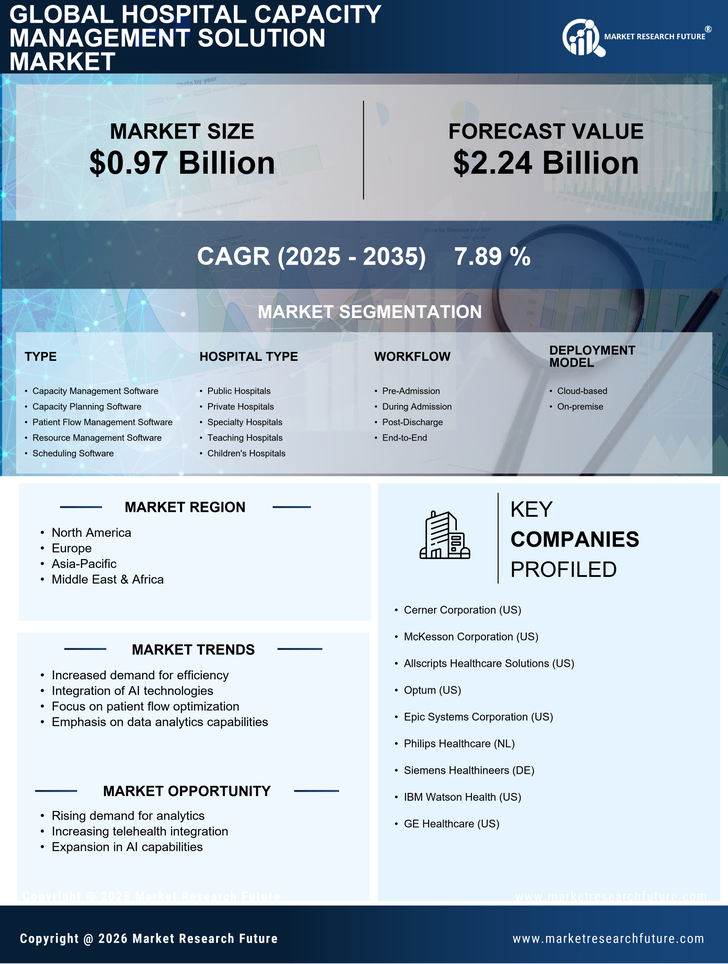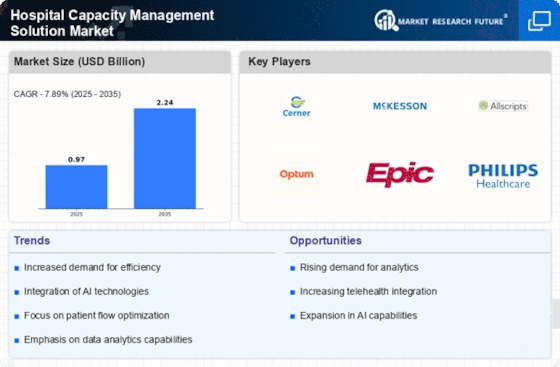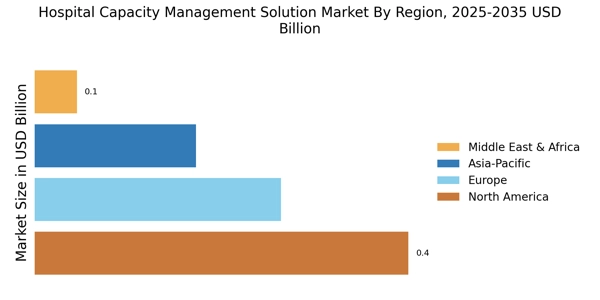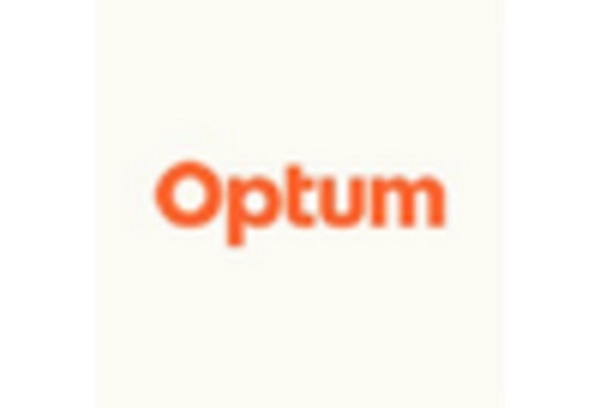Increased Focus on Patient Experience
The Hospital Capacity Management Solution Market is increasingly influenced by a heightened focus on patient experience. Healthcare providers are recognizing that patient satisfaction is closely linked to operational efficiency. Solutions that streamline patient flow and reduce wait times are becoming essential in enhancing the overall patient journey. Data suggests that hospitals that prioritize patient experience see a 20% increase in patient retention rates. As a result, capacity management solutions that facilitate smoother admissions and discharges are gaining traction. This trend reflects a broader shift in healthcare towards patient-centered care, where operational strategies are aligned with the goal of improving patient satisfaction and outcomes.
Shift Towards Value-Based Care Models
The shift towards value-based care models is transforming the Hospital Capacity Management Solution Market. As healthcare systems move away from fee-for-service models, there is a growing emphasis on delivering high-quality care while managing costs. Capacity management solutions are integral to this transition, as they enable healthcare providers to optimize resource utilization and improve patient outcomes. Data indicates that hospitals adopting value-based care models can achieve a 15% reduction in operational costs. This trend underscores the importance of capacity management solutions in supporting healthcare providers in their efforts to deliver value-driven care, ultimately leading to better health outcomes for patients.
Technological Advancements in Healthcare
Technological advancements are playing a pivotal role in shaping the Hospital Capacity Management Solution Market. Innovations such as artificial intelligence, machine learning, and data analytics are being integrated into capacity management solutions, enabling hospitals to predict patient admissions and optimize resource allocation. For instance, predictive analytics can forecast patient inflow with remarkable accuracy, allowing for proactive management of hospital resources. The market for healthcare analytics is projected to reach USD 50 billion by 2027, indicating a robust growth trajectory. These technological enhancements not only improve operational efficiency but also contribute to better patient outcomes, as hospitals can respond more effectively to fluctuating demands.
Regulatory Compliance and Quality Standards
Regulatory compliance is a significant driver in the Hospital Capacity Management Solution Market. Healthcare facilities are required to adhere to stringent regulations and quality standards, which necessitate the implementation of effective capacity management systems. Compliance with these regulations not only ensures patient safety but also enhances operational efficiency. For example, hospitals that utilize capacity management solutions can better track and report their compliance metrics, thereby reducing the risk of penalties. The increasing emphasis on quality care and patient safety is likely to propel the adoption of capacity management solutions, as healthcare providers seek to meet regulatory requirements while optimizing their operations.
Rising Demand for Efficient Resource Management
The Hospital Capacity Management Solution Market is experiencing a surge in demand for efficient resource management systems. As healthcare facilities strive to optimize their operations, the need for solutions that can effectively manage bed occupancy, staff allocation, and patient flow becomes paramount. According to recent data, hospitals that implement capacity management solutions can reduce patient wait times by up to 30%, thereby enhancing overall patient satisfaction. This trend is likely driven by the increasing complexity of healthcare delivery, necessitating advanced tools to streamline operations. Furthermore, as healthcare costs continue to rise, hospitals are compelled to adopt solutions that maximize resource utilization, making capacity management systems an essential component of modern healthcare infrastructure.


















